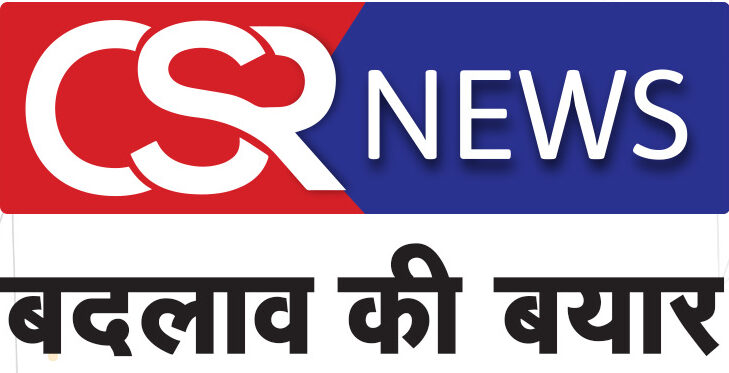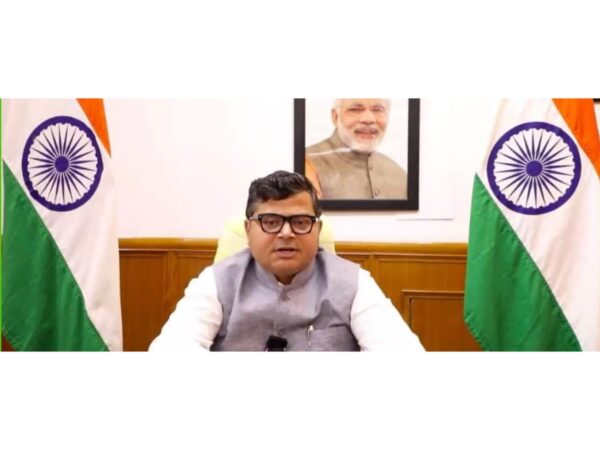New Delhi, March 26: On March 25, 2025, at 11 AM, the India Water Foundation (IWF), in partnership with the World Meteorological Organization (WMO) and the United Nations’ Mountain Partnership, hosted a High-Level Policy Dialogue on protecting receding glaciers. The event, held at Hotel Drake Longchamp in Geneva, marked both World Water Day and the 17th anniversary of the India Water Foundation. The dialogue transformed the hybrid conference space into a vibrant platform for global environmental discussions.
The event brought together experts, policymakers, and environmental leaders to address the urgent crisis of glacial melt and its long-term impacts. Dr. Arvind Kumar, President of IWF, highlighted the vital role glaciers play as freshwater reservoirs and warned that their continued retreat threatens water security, agriculture, and global stability. He cautioned that if current trends persist, South Asia could lose 80% of its glaciers by the next century.
In his address, Shri Dr. Raj Bhushan Chaudhary, Minister of State, Ministry of Jal Shakti, highlighted the devastating effects of glacier loss on major Indian rivers such as the Ganges, Brahmaputra, and Indus, which sustain millions of lives. He noted that Arunachal Pradesh alone has lost over 300 square kilometers of glacial area between 1988 and 2020, underscoring the government’s commitment to tackling this pressing issue.
Sh. Bharat Lal, Secretary General of the National Human Rights Council of India, emphasized that for a country like India with a population of 1.4 billion, water security equates to national security. He stressed the need for preserving forests as carbon sinks, empowering communities for collective action, and promoting skill development, cross-border training, and innovative financing strategies to secure long-term water availability.
Moderating the session, Ms. Shweta Tyagi, Chief Functionary of IWF, shed light on alarming data showing that since 2000, global glaciers have lost 273 billion tons of ice annually, contributing 18mm to rising sea levels — a trend that threatens freshwater resources, biodiversity, and coastal stability.
Mr. Ignacio Deregibus, Executive Director of the International Water Resources Association, described glacier melt as a water, development, and justice crisis. He advocated for global cooperation, joint monitoring systems, and targeted climate finance to protect glaciers.
Ms. Sonja Koeppel, Secretary of the UNECE Water Convention, called for stronger transboundary water cooperation since 60% of the world’s freshwater crosses political borders. She urged countries to align their climate, water, and disaster management policies.
Dr. Stefan Uhlenbrook, Director of WMO Hydrology and Cryosphere, shared data revealing that 9,000 gigatons of glacier ice have melted since 1975, with 450 gigatons lost in 2024 alone. He noted that Swiss glaciers had shrunk by 10% in just two years, posing a warning for mountain regions worldwide.
Ms. Sara Manuelli, Advocacy Officer at the FAO Mountain Partnership, discussed the severe impact of glacier loss on food security, livelihoods, and mountain communities. She called for investments in sustainable agriculture, carbon sequestration, and gender-inclusive policies to build resilience.
Dr. Mohd. Farooq Azam, Senior Cryosphere Specialist at ICIMOD, warned that climate change is altering monsoon patterns, potentially leading to significant water shortages beyond 2050.
The dialogue concluded with a unified message: preserving glaciers is an urgent necessity. Participants emphasized the need for stronger climate policies, enhanced glacier monitoring, and improved international collaboration. The India Water Foundation reaffirmed its dedication to driving cross-border cooperation, underscoring that water security is not just about resources — it is about equity, resilience, and survival.
As glaciers continue to vanish, the time to act is now — before these frozen lifelines disappear, taking with them the foundation of life on Earth.

